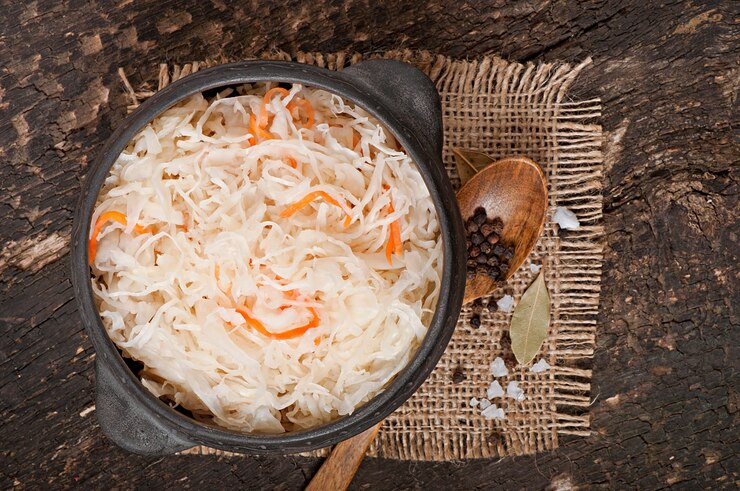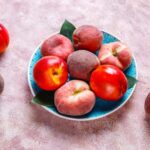Probiotics are essential for maintaining a healthy gut microbiome, which plays a critical role in digestion, immunity, and overall well-being. While many probiotics come in supplement form, food-based sources are a natural and delicious way to include these beneficial bacteria in your diet. For vegans, several plant-based options are brimming with probiotics. Here are 10 of the best vegan-friendly foods that can help boost your gut health.
1. Sauerkraut
Made from fermented cabbage, sauerkraut is a rich source of probiotics and fiber. It’s an excellent way to support digestion while adding a tangy kick to meals. Look for raw, unpasteurized sauerkraut, as pasteurization can kill the beneficial bacteria.
2. Kimchi
This Korean staple is a spicy, fermented vegetable dish typically made with napa cabbage and radishes. Packed with lactobacilli and other probiotics, kimchi also contains vitamins A and C, making it a great addition to a vegan diet.
3. Miso
Miso is a traditional Japanese paste made from fermented soybeans and grains. Rich in probiotics, it’s commonly used to make soups or as a savory flavoring in sauces and marinades. To retain the probiotics, avoid boiling miso and add it to dishes toward the end of cooking.
4. Tempeh
Originating from Indonesia, tempeh is a fermented soybean product with a firm texture and nutty flavor. In addition to being a source of probiotics, it’s also rich in protein and a great meat substitute in vegan diets. Grill it, stir-fry it, or use it in sandwiches and salads.
5. Kombucha
Kombucha is a fizzy, slightly tangy fermented tea that has become a popular probiotic drink. Made by fermenting tea with a symbiotic culture of bacteria and yeast (SCOBY), kombucha is refreshing and comes in various flavors.
6. Pickles
Naturally fermented pickles made with brine (not vinegar) are a tasty way to consume probiotics. These tangy snacks are perfect on their own or as a topping for sandwiches. Be sure to choose raw, unpasteurized varieties to get the probiotic benefits.
7. Vegan Yogurt
Many plant-based yogurts made from almond, coconut, or soy milk are fortified with live cultures, making them a great probiotic option for vegans. Look for unsweetened varieties to avoid excess sugar, which can counteract the gut-health benefits.
8. Sourdough Bread
Sourdough bread is made using a natural fermentation process that creates beneficial bacteria. While baking eliminates live probiotics, the fermentation process supports gut health by breaking down phytic acid, making nutrients in the bread easier to absorb.
9. Beet Kvass
A lesser-known probiotic drink, beet kvass is made by fermenting beets with water and salt. It has a tangy, earthy flavor and is rich in probiotics, vitamins, and antioxidants, making it a great addition to a gut-healthy diet.
10. Coconut Kefir
Coconut kefir is a probiotic-rich drink made by fermenting coconut water or milk. It’s dairy-free and has a mildly tangy flavor. Coconut kefir is easy to make at home and can be consumed on its own or added to smoothies.
Benefits of Probiotic-Rich Foods
Including probiotic-rich foods in your diet can help:
- Improve digestion and nutrient absorption.
- Strengthen the immune system.
- Reduce bloating and improve regularity.
- Support mental health by promoting gut-brain communication.
Tips for Incorporating Probiotic Foods into Your Diet
- Add sauerkraut or kimchi to salads, wraps, or grain bowls.
- Use miso as a base for soups or as a seasoning in marinades.
- Replace traditional sandwich bread with sourdough for added flavor and gut benefits.
- Enjoy a glass of kombucha or beet kvass as a refreshing drink.
- Snack on pickles or pair them with vegan cheese and crackers.
By including these delicious plant-based probiotic foods in your meals, you can naturally support your gut health while enjoying diverse and flavorful dishes.








